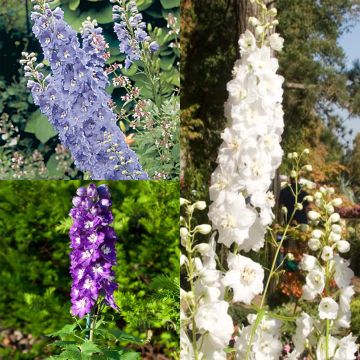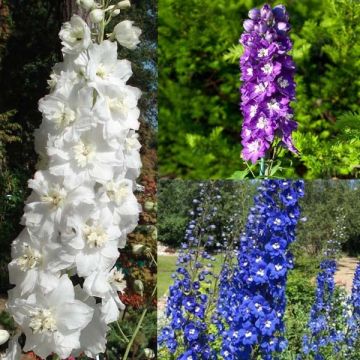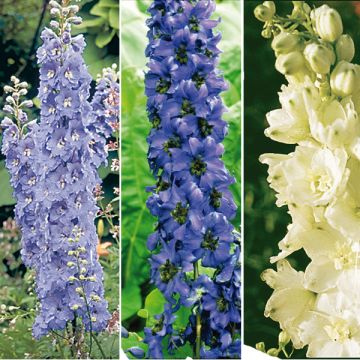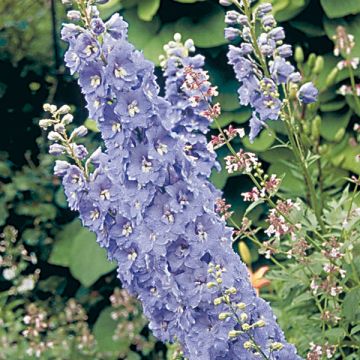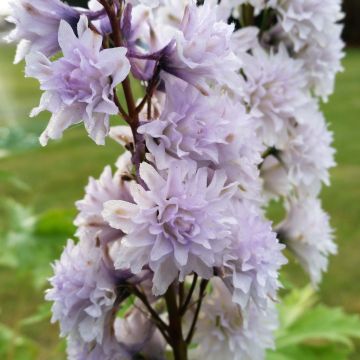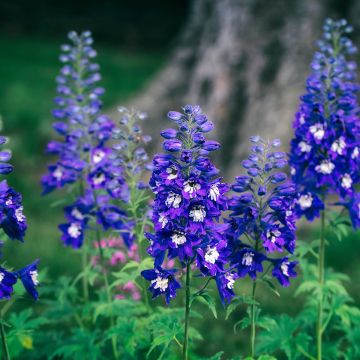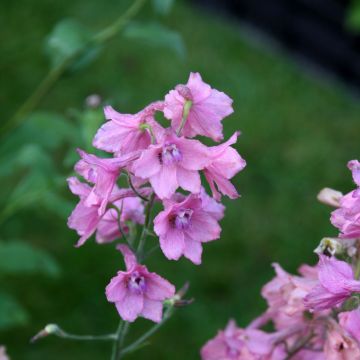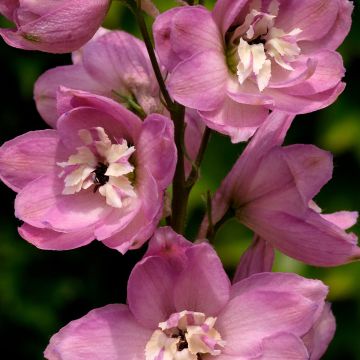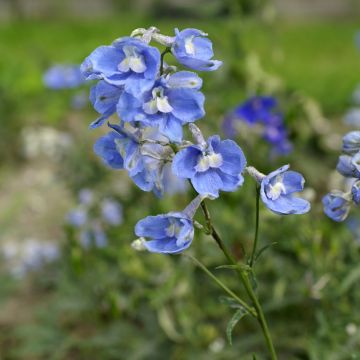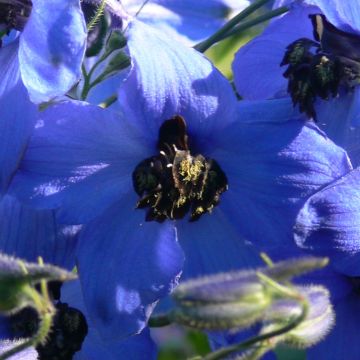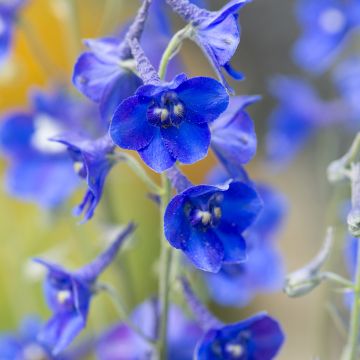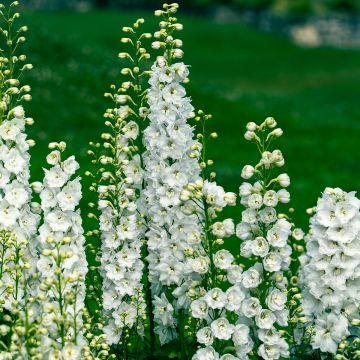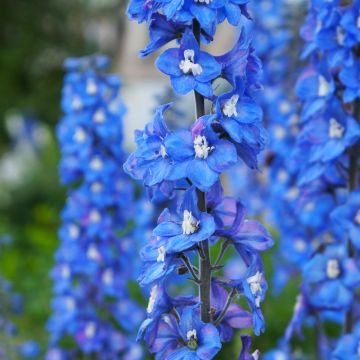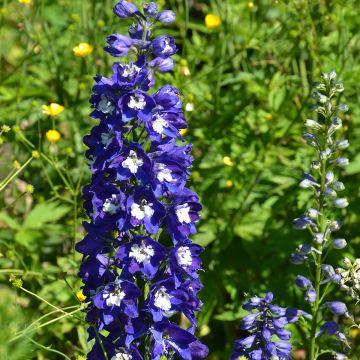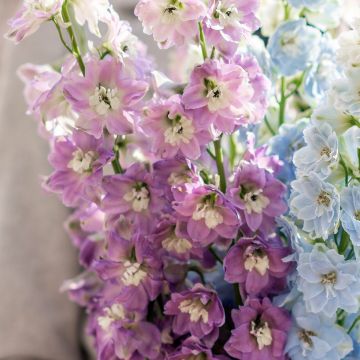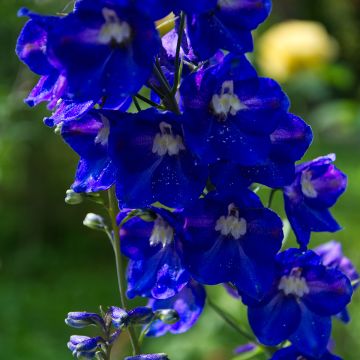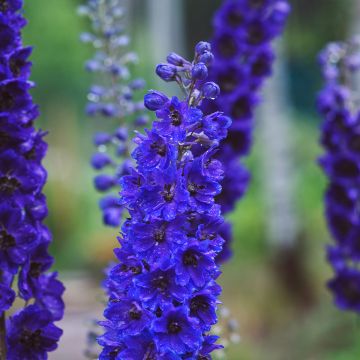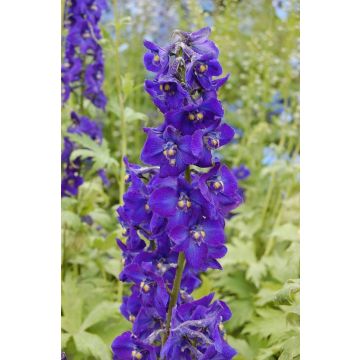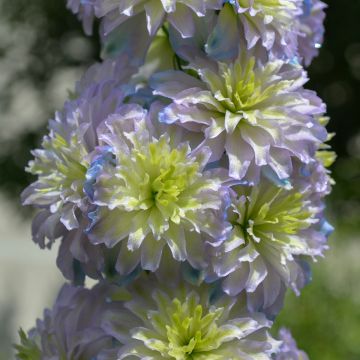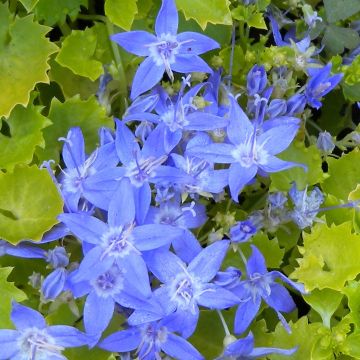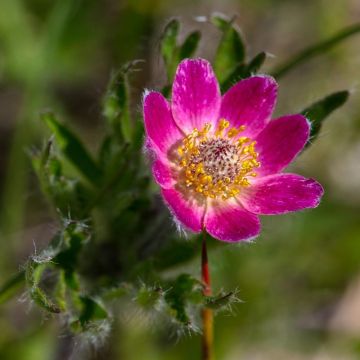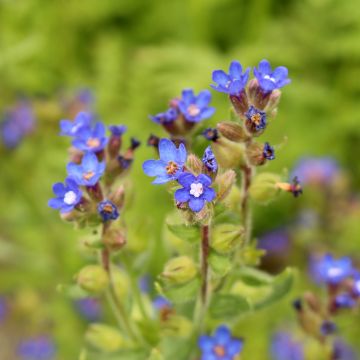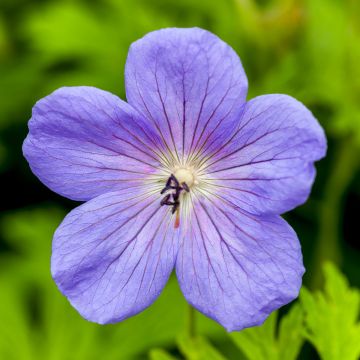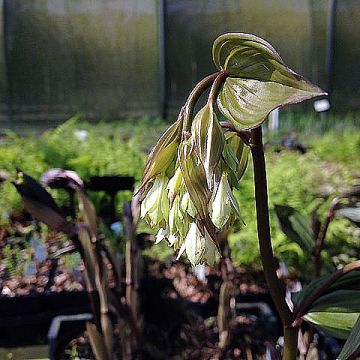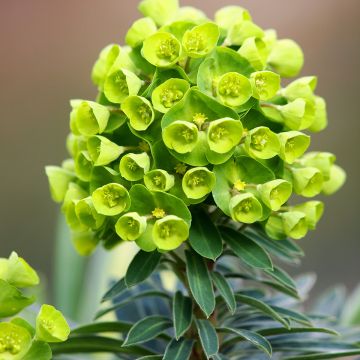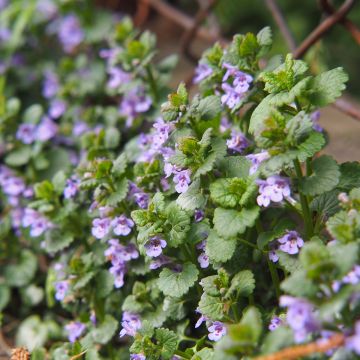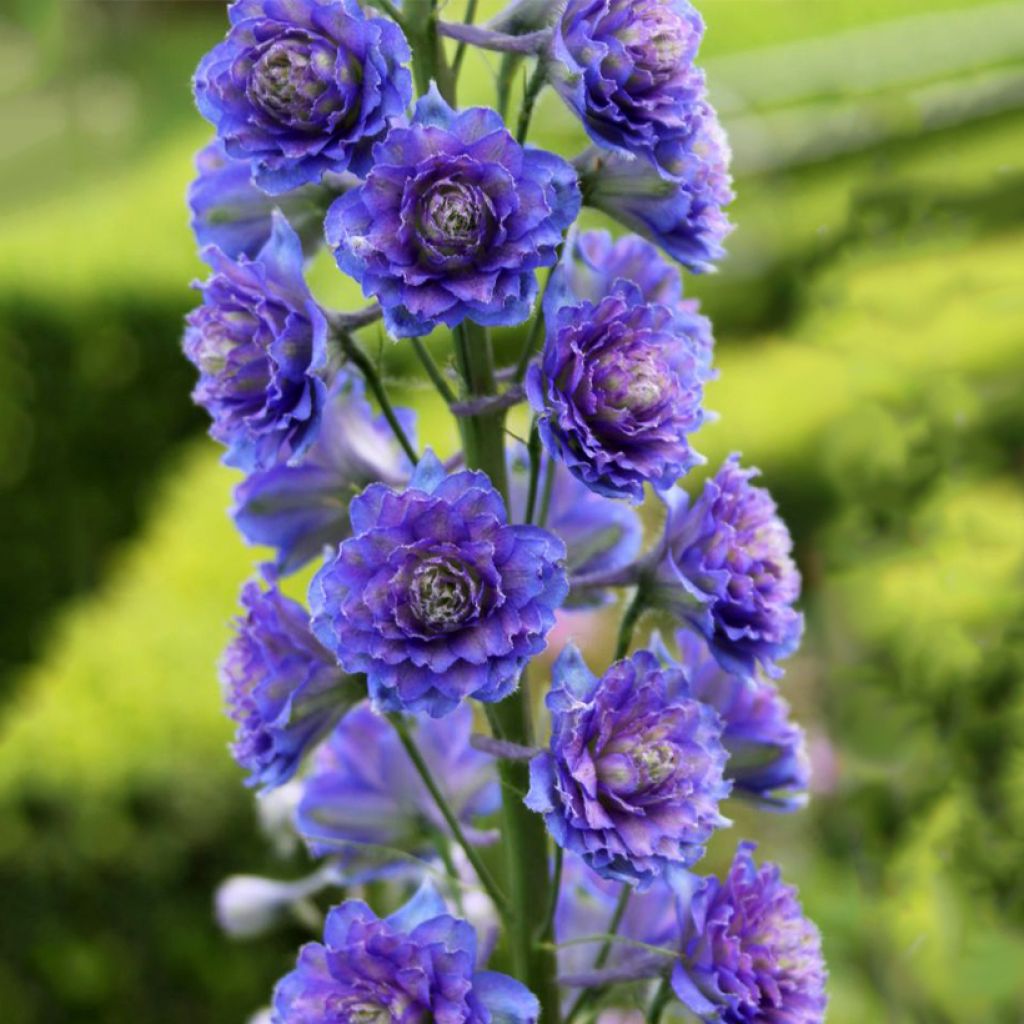

Delphinium Highlander Blueberry Pie - Pied d'Alouette vivace
Delphinium Blueberry Pie - Larkspur
Delphinium x elatum Highlander Blueberry Pie
Candle Larkspur, Tall Larkspur, Perennial Larkspur
This is the first time that bare-root plants have not taken! I had ordered two, and neither has taken. I am honestly disappointed, especially since the Highlander series is beautiful.
Frédérique , 25/05/2024
Special offer!
Receive a €20 voucher for any order over €90 (excluding delivery costs, credit notes, and plastic-free options)!
1- Add your favorite plants to your cart.
2- Once you have reached €90, confirm your order (you can even choose the delivery date!).
3- As soon as your order is shipped, you will receive an email containing your voucher code, valid for 3 months (90 days).
Your voucher is unique and can only be used once, for any order with a minimum value of €20, excluding delivery costs.
Can be combined with other current offers, non-divisible and non-refundable.
Why not try an alternative variety in stock?
View all →This plant carries a 12 months recovery warranty
More information
We guarantee the quality of our plants for a full growing cycle, and will replace at our expense any plant that fails to recover under normal climatic and planting conditions.
Would this plant suit my garden?
Set up your Plantfit profile →
Description
Delphinium Blueberry Pie joins the series of perennial Highlander larkspurs, developed in Scotland. It has the same floribundance and solidity as its siblings. It is a stocky Delphinium that can do without staking and produces many very double flowers throughout the summer in spikes loaded with frilled deep lilac flowers, with a pale green centre, tinged with blue on the outside. Remarkable planted in groups in borders where they can be seen from a distance for weeks, they are also excellent flowers for bouquets.
This Highlander Delphinium Blueberry Pie is named after the famous mountainous and wild region of Scotland, a region rich in history and legends. Belonging to the buttercup family, it comes from the Delphinium elatum, the tall larkspur found in cool meadows at high altitudes in the Alps of Europe, as well as in southern, central and eastern Europe, Siberia, Mongolia, and China. The Blueberry Pie variety is a sturdy herbaceous perennial plant, with a short lifespan but rapid growth. It develops a clump of highly dissected palmate, decorative, tender green leaves reaching a height of 45-55 cm (18-22in), from which flower spikes of 1 m (3ft) high emerge in summer. Flowering starts in June and continues regularly until the first frost, provided that the faded flower spikes are removed. It is loved by pollinating insects. The full flowers are composed of 40 to 60 incurved small petals, perfectly layered with each other, arranged in several rows. They are closely packed on sturdy stems, facing up to wind and rain well. Their colour is in rich shades: the outermost petals have blue hues on the reverse side, those on the intermediate level are dark lilac, and those in the centre are pale green. These flowers are sterile and therefore last longer than those of other varieties. The plant develops from a woody rhizome that grows vertically into the soil. The above-ground, deciduous vegetation disappears in winter.
The characteristic silhouette of Delphiniums always adds volume, height, and charm to perennial plant borders, just like hollyhocks which lack the blue tones that make larkspurs splendid. They make good companions for roses, creating charming and romantic compositions. You can also create a beautiful combination with echinaceas, violet or pink perennial salvias (Salvia nemorosa), and grasses, in a more rustic spirit. And even with ornamental garlics. This modest-sized variety can be supported by small flowering shrubs or tall perennials: Escallonia, dwarf buddleias, dwarf lilacs, shrubby peonies, shrubby mallows.
Note: From March to September, the stems of our delphiniums are pruned short to encourage better branching of the crown and achieve optimal rooting. This also prevents the stems from breaking during transportation.
Report an error about the product description
Flowering
Foliage
Plant habit
Safety measures
Botanical data
Delphinium
x elatum
Highlander Blueberry Pie
Ranunculaceae
Candle Larkspur, Tall Larkspur, Perennial Larkspur
Cultivar or hybrid
ingestion
Cette plante est toxique si elle est ingérée volontairement ou involontairement.
Ne la plantez pas là où de jeunes enfants peuvent évoluer, et lavez-vous les mains après l'avoir manipulée.
Pensez à conserver l'étiquette de la plante, à la photographier ou à noter son nom, afin de faciliter le travail des professionnels de santé.
Davantage d'informations sur https://plantes-risque.info
Other Delphinium - Larkspur
View all →Planting and care
'Highlander' Delphiniums, selected under the harsh Scottish climate, are not difficult to grow but still require some precautions: delphiniums dislike heavy, compact and wet, or dry and poor soils. The soil that suits them is deep and fertile, rich in humus, non-compact, moist, even in summer, but without excess water in winter, and sheltered from strong winds. Under these conditions, they will live for many years. Beware of slugs and snails that can cause damage at the beginning of growth. Full sun will limit the risk of mildew. As a precaution, you can install fairly tall stakes around the plants in windy regions, depending on the size of the variety.
Planting period
Intended location
Care
-
, onOrder confirmed
Reply from on Promesse de fleurs
Similar products
Haven't found what you were looking for?
Hardiness is the lowest winter temperature a plant can endure without suffering serious damage or even dying. However, hardiness is affected by location (a sheltered area, such as a patio), protection (winter cover) and soil type (hardiness is improved by well-drained soil).

Photo Sharing Terms & Conditions
In order to encourage gardeners to interact and share their experiences, Promesse de fleurs offers various media enabling content to be uploaded onto its Site - in particular via the ‘Photo sharing’ module.
The User agrees to refrain from:
- Posting any content that is illegal, prejudicial, insulting, racist, inciteful to hatred, revisionist, contrary to public decency, that infringes on privacy or on the privacy rights of third parties, in particular the publicity rights of persons and goods, intellectual property rights, or the right to privacy.
- Submitting content on behalf of a third party;
- Impersonate the identity of a third party and/or publish any personal information about a third party;
In general, the User undertakes to refrain from any unethical behaviour.
All Content (in particular text, comments, files, images, photos, videos, creative works, etc.), which may be subject to property or intellectual property rights, image or other private rights, shall remain the property of the User, subject to the limited rights granted by the terms of the licence granted by Promesse de fleurs as stated below. Users are at liberty to publish or not to publish such Content on the Site, notably via the ‘Photo Sharing’ facility, and accept that this Content shall be made public and freely accessible, notably on the Internet.
Users further acknowledge, undertake to have ,and guarantee that they hold all necessary rights and permissions to publish such material on the Site, in particular with regard to the legislation in force pertaining to any privacy, property, intellectual property, image, or contractual rights, or rights of any other nature. By publishing such Content on the Site, Users acknowledge accepting full liability as publishers of the Content within the meaning of the law, and grant Promesse de fleurs, free of charge, an inclusive, worldwide licence for the said Content for the entire duration of its publication, including all reproduction, representation, up/downloading, displaying, performing, transmission, and storage rights.
Users also grant permission for their name to be linked to the Content and accept that this link may not always be made available.
By engaging in posting material, Users consent to their Content becoming automatically accessible on the Internet, in particular on other sites and/or blogs and/or web pages of the Promesse de fleurs site, including in particular social pages and the Promesse de fleurs catalogue.
Users may secure the removal of entrusted content free of charge by issuing a simple request via our contact form.
The flowering period indicated on our website applies to countries and regions located in USDA zone 8 (France, the United Kingdom, Ireland, the Netherlands, etc.)
It will vary according to where you live:
- In zones 9 to 10 (Italy, Spain, Greece, etc.), flowering will occur about 2 to 4 weeks earlier.
- In zones 6 to 7 (Germany, Poland, Slovenia, and lower mountainous regions), flowering will be delayed by 2 to 3 weeks.
- In zone 5 (Central Europe, Scandinavia), blooming will be delayed by 3 to 5 weeks.
In temperate climates, pruning of spring-flowering shrubs (forsythia, spireas, etc.) should be done just after flowering.
Pruning of summer-flowering shrubs (Indian Lilac, Perovskia, etc.) can be done in winter or spring.
In cold regions as well as with frost-sensitive plants, avoid pruning too early when severe frosts may still occur.
The planting period indicated on our website applies to countries and regions located in USDA zone 8 (France, United Kingdom, Ireland, Netherlands).
It will vary according to where you live:
- In Mediterranean zones (Marseille, Madrid, Milan, etc.), autumn and winter are the best planting periods.
- In continental zones (Strasbourg, Munich, Vienna, etc.), delay planting by 2 to 3 weeks in spring and bring it forward by 2 to 4 weeks in autumn.
- In mountainous regions (the Alps, Pyrenees, Carpathians, etc.), it is best to plant in late spring (May-June) or late summer (August-September).
The harvesting period indicated on our website applies to countries and regions in USDA zone 8 (France, England, Ireland, the Netherlands).
In colder areas (Scandinavia, Poland, Austria...) fruit and vegetable harvests are likely to be delayed by 3-4 weeks.
In warmer areas (Italy, Spain, Greece, etc.), harvesting will probably take place earlier, depending on weather conditions.
The sowing periods indicated on our website apply to countries and regions within USDA Zone 8 (France, UK, Ireland, Netherlands).
In colder areas (Scandinavia, Poland, Austria...), delay any outdoor sowing by 3-4 weeks, or sow under glass.
In warmer climes (Italy, Spain, Greece, etc.), bring outdoor sowing forward by a few weeks.






























